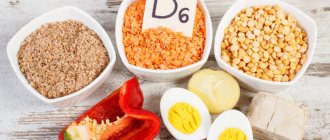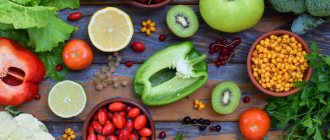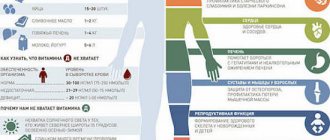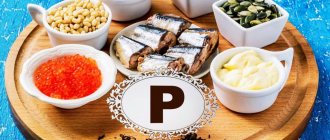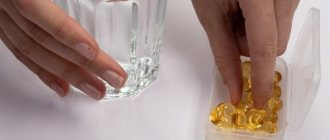It is amazing that in the 21st century, about 2 billion people on the planet are zinc deficient. You're especially likely to be one of them if you're over 50, diabetic, drink alcohol, vegetarian, take zinc-depleting medications, or have a bacterium in your digestive tract called Helicobacter pylori, which reduces stomach acid levels. necessary for the absorption of zinc.
The human body contains 2-3 grams (2000-3000 milligrams) of zinc.
Most of it is found in the adrenal glands, brain and eyes. Because most zinc is stored inside cells and not found in the blood, blood tests for zinc deficiency are notoriously inaccurate. And most doctors don't know about this!
On average, a person gets about 10 milligrams of zinc per day from food, but, at best, only 2-3 milligrams are absorbed. Foods fortified with zinc often do not affect the body’s supply of zinc, since the main problem of mineral deficiency is its poor absorption.
The situation is aggravated by the fact that modern medicine does not care about the deficiency of essential nutrients. Most doctors incorrectly teach that diet provides adequate nutrition; deal with each disease separately, without even trying to suggest that the ailment may be caused by a deficiency of certain vitamins or minerals.
Thus, the epidemic of zinc malnutrition continues unabated. And all the diseases associated with a deficiency of a vital mineral fill doctors' offices every day. Meanwhile, you can endlessly take medications for the heart, immunity, memory, etc., when just one tablet of a zinc drug could fix everything.
After all, zinc is a vital mineral for maintaining optimal health. Zinc is involved in the processes of cell reproduction, the functioning of the body's immune and antioxidant systems, regulation of metabolism and many other biological processes.
Why is zinc so important for the body?
Zinc has universal significance for the human body. It makes your appearance more attractive and strengthens all body functions. Its meaning should be described in detail.
This element has the following effects:
- Leads to improved metabolism. Normalizes metabolism.
- Strengthens immunity. Increases the abilities of antibodies and leukocytes. The microelement is so useful that it prevents the virus from passing into the cells of the human body.
- Helps the child grow. Promotes cell division.
- Positively affects the reproductive organs. Promotes the formation of active sperm. Prevents prostate adenoma. It improves hormonal status in women, so women need it just as much as men.
- Reduces the likelihood of cancer. Rids the body of unnecessary and toxic elements.
- Helps slow down the aging process. Eliminates free radicals.
- Improves the health of nails, skin and hair. Rejuvenates the skin.
- Strengthens bone tissue.
- Prevents myopia and makes eyes adaptable to darkness.
So, the element in question is indispensable in the fight against aging, improving metabolism, immunizing the body and other important processes.
Summarize
- Although some foods contain zinc well above the TIDL of 40 mg per day, there have been no cases of zinc poisoning from naturally occurring zinc in foods.
- However, zinc overdose can occur due to dietary supplements or accidental overuse.
- Zinc poisoning can have both acute and chronic effects. The severity of your symptoms depends largely on the dose and duration of use.
- Gastrointestinal symptoms are likely to occur with a single dose of high doses of zinc. In severe cases, such as accidental ingestion of household products containing zinc, gastrointestinal ulceration and bleeding may occur.
- Long-term use may cause less severe but serious side effects, such as low levels of "good" HDL cholesterol, copper deficiency, and a suppressed immune system.
- In general, you should only exceed the prescribed TDL under the supervision of a physician.
The article was prepared by experts for informational purposes only. It should not be used as a guide for treating medical conditions and is not a substitute for professional medical advice, diagnosis, or treatment. In case of illness or any symptoms, you should always consult a doctor and not self-medicate.
Tags: Zinc
About the author: Larisa Kuts
Board-certified physician specializing in family medicine, geriatrics and integrative medicine. Clinical experience as a physician ranging from disease management to family practice and emergency care.
- Related Posts
- How to get vitamin D: effective ways
- Inositol: benefits and harms, dosage
- What time of day should you take magnesium supplements?
« Previous entry
Main symptoms of zinc deficiency
You can find out from many signs that there is not enough zinc in the body. It’s worth taking another look at the condition of your nails and hair to see if they have become thinner or break on the first try. With a lack of zinc, a person feels tired all the time, eats little, loses weight and suffers from insomnia. His sense of smell and taste deteriorate, his vision is lost and his skin becomes worse. Eye diseases such as glaucoma and cataracts may occur.
Scratches and wounds that heal very slowly, as well as the presence of ulcers - all this tells a person that his body needs an increase in the amount of zinc. Since this element is an important defense against the virus, immunity with its deficiency drops significantly.
Recommended video:
Frequent infections
Although zinc plays an important role in immune system function, too much zinc can suppress your immune response ().
This is usually a side effect of anemia and neutropenia, but has also been shown to occur outside of zinc-induced blood disorders.
In test tube studies, excess zinc reduced the function of T cells, a type of white blood cell. T cells play a central role in your immune response, attaching to and destroying harmful pathogens (, ,).
Human studies also support this, but the results are less consistent.
A small study of 11 healthy men after taking 150 mg of zinc twice daily for six weeks showed a decrease in immune response ().
However, taking 110 mg of zinc three times daily for one month had mixed effects in older adults. Some had a reduced immune response, while others had an increased response ().
Summary:
Taking zinc supplements in doses higher than the DVIL may suppress your immune response, making you more susceptible to disease and infection.
Features of assimilation
Zinc interacts with other substances in different ways. There are substances that are friendly to him, and there are substances that are hostile to him. Zinc goes well with vitamins B6, C, E and A. Magnesium and fluoride are “friends” with it.
Some substances present in the body in excess prevent it from being absorbed. These are copper, calcium, tin, iron, folic acid, lead. The most ardent enemies are alcohol, as well as coffee or tea. Drugs such as certain steroids or birth control pills also interfere with zinc. Fiber, which vegetarians eat, removes zinc by eighty percent.
But, if there is too much of this element, it itself prevents some substances from being absorbed. Among them are copper, iron and vitamin A. So, zinc has beneficial effects with a balanced diet.
Changes in taste
Zinc is important for your taste. In fact, zinc deficiency can lead to a condition called hypogeusia - dysfunction in your ability to taste ().
Interestingly, an overdose of zinc can also cause taste changes, including an unpleasant or metallic taste in the mouth.
Typically, this symptom is reported in studies of zinc cough drops or liquid cold supplements.
While some studies report positive results, the doses used are often well above the TIDL of 40 mg per day, and side effects are common ().
For example, 14% of participants in a one-week study complained of a distorted sense of taste after dissolving 25 mg zinc tablets in the mouth every two hours while awake ().
In another study using a liquid supplement, 53% of participants reported a metallic taste in their mouth. However, it is unclear how long these symptoms last ().
If you are using zinc lozenges or liquid supplements, be aware that these symptoms may occur even if the product is taken as directed ().
Summary:
Zinc plays a role in taste perception. Overdosing on zinc can cause a metallic taste in the mouth, especially if taken in lozenge or liquid supplement form.
Daily requirement of zinc
This norm was introduced back in the 70s.
| For a child | 5-10 mg |
| For woman | 12 mg |
| For a man | 15 mg |
In general, the dosage is prescribed by the doctor. Zinc is needed in increased portions by pregnant women, nursing mothers, and athletes. And vegetarians should at least take vitamins that contain it.
Foods rich in zinc
| Products | Amount of zinc in one hundred grams |
| Fried calf liver | 15 mg |
| Meat of pig, cow, sheep | 7 to 9 mg |
| Chicken hearts | 7 milligrams |
| Sheep liver | 6 mg |
| Turkey or duck | 2.5 mg |
| Beans, soy | 4.2 mg |
| Brazilian nut | 4 milligrams |
| Lentils | 3.8 mg |
| Wheat flour (whole grain) | 3 milligrams |
| Buckwheat, oatmeal | 2.5 to 3 mg |
| Cashews or almonds | 2.1 mg |
| Beans or peas | 1.6 to 2.5 mg |
So, most healthy and common diet foods contain zinc. It is easy to see that, as a rule, these are natural products that are prepared at home.
Selenium standards for adults and children
The rate of selenium intake depends on age.
Table 1. Selenium consumption standards depending on age
| Age, condition | Selenium norm |
| Children | ranges from 20 to 55 mcg/day |
| Adults | 55 mcg/day |
| During pregnancy and breastfeeding | recommended daily dose - 60-70 mcg |
Zinc-containing animal products
The element necessary for the body is found in many of the most common food products: grains, different types of nuts, fish and meat foods, wheat bran. Moreover, it is found in almost all yeast, as well as in poultry meat, inside onions and garlic, and in vegetables (only fresh).
Nuts and plants are, of course, rich in this element. But nutritionists believe that the most zinc-containing foods are meat and fish. Plant foods also contain zinc, but animal products are more abundant.
Among animal products, mention should be made of the egg yolk, which contains as much as four milligrams of this element per hundred grams of the substance, as well as dairy products. It can be milk, kefir, sour cream, and yogurt. Zinc is also found in sausages, but only in natural ones.
Zinc in meat products
From meat, this is, first of all, chicken heart, fried lamb liver and kidneys. Beef, pork, and lamb are classic examples of high-calorie foods that contain elements necessary for the body, including zinc.
Zinc in seafood
The most zinc-containing fish products are seafood products. And anchovies contain three and a half milligrams of zinc per hundred grams. Sardines, tuna, oysters are both tasty and healthy products containing useful microelements. Tuna in oil is a real delicacy, and salmon can be preserved and eaten for dessert for a long time.
Total information
Location on the periodic table D.I. Mendeleev: in the old version - IV period, V row, II group, in the new version of the table - 12 group, 4 period.
- Atomic number – 30
- Atomic mass – 65.38 g/mol
- Electronic configuration – [Ar] 3d10 4s2
- Melting point (°C) – 419.6.
- Boiling point (°C) – 906.2.
- CAS: 7440-66-6.
Read also Diet No. 1b (table No. 1b) - nutrition for gastritis, stomach and duodenal ulcers during their exacerbation
Physicochemical characteristics. Pure Zn is a silvery-white metal, plastic to the touch, which crackles slightly when bent due to friction between the crystals. When heated to 100 degrees, plasticity increases significantly, but as soon as it contains impurities of other minerals, fragility increases sharply.
Upon contact with air, it becomes covered with a thin oxide film, and when exposed to high temperatures it gradually burns.
Plant foods with zinc
If we talk about types of cereals, special attention should be paid to buckwheat; if we mention flour products, we should mention bread. If there is not enough zinc in the body, you should drink green tea and also eat berries, dates, and apples.
Zinc in cereals and legumes
Beans and lentils are foods whose importance may be underestimated. They are not eaten so often, although they contain many useful elements, including such essential ones as zinc.


